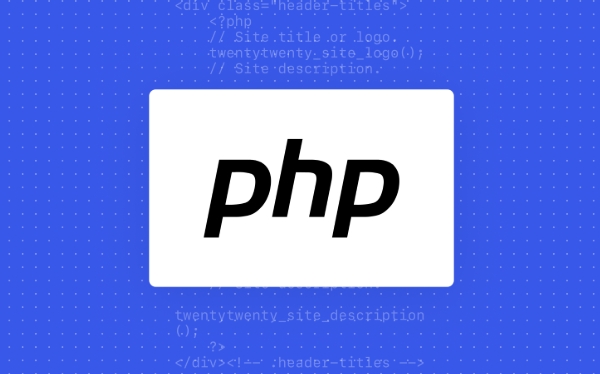 Backend Development
Backend Development
 PHP Tutorial
PHP Tutorial
 Beyond Sanitization: The Fundamental Problem with $_REQUEST's Data Ambiguity
Beyond Sanitization: The Fundamental Problem with $_REQUEST's Data Ambiguity
加大通报力度 西安纪委对340余责任人追责问责
Using $_REQUEST introduces data ambiguity by merging inputs from $_GET, $_POST, and $_COOKIE, making it impossible to determine the source of data. 2. This unpredictability weakens security because different sources have different trust levels and attack vectors, such as CSRF via GET or session fixation via cookies, and it becomes difficult to apply appropriate defenses. 3. Debugging is hindered since it’s unclear whether a value came from a URL, form, or cookie, leading to longer troubleshooting and potential misdiagnosis. 4. It promotes poor coding practices by blurring HTTP method semantics, allowing dangerous behaviors like state changes via GET requests, and it depends on server configuration (request_order), which can cause silent data overrides and inconsistent behavior across environments. The core issue is that even sanitized input via $_REQUEST lacks context, so using explicit superglobals like $_GET, $_POST, and $_COOKIE improves clarity, security, and maintainability, making the minor verbosity a worthwhile trade-off for robust, predictable code.

The issue with $_REQUEST in PHP goes far beyond whether or not you sanitize input—it's rooted in a deeper, structural problem: data ambiguity. When you use $_REQUEST, you lose clarity about where your data comes from, and that lack of transparency creates security risks, debugging nightmares, and poor architectural discipline.

Unlike $_GET, $_POST, and $_COOKIE, which clearly define the source of incoming data, $_REQUEST is a merged superglobal that pulls values from multiple sources based on PHP’s request_order or variables_order directives. This means the same key could come from a URL parameter, a form submission, or even a cookie—depending on server configuration and request type. That ambiguity is the core problem.
1. Unpredictable Data Sources Make Security Harder
Because $_REQUEST aggregates input from GET, POST, and COOKIE, you can't assume where a value originated. This matters because:

- Different sources have different trust levels. A POST parameter from a form submission might be considered more trustworthy than a GET parameter in the URL, which could be manipulated or logged.
- Attack vectors differ. CSRF attacks often exploit GET parameters; session fixation may abuse cookies. If you don’t know the source, you can’t apply appropriate defenses.
- Security filters become guesswork. You might sanitize a value thinking it's from a form, but it actually came from a URL that was cached or shared, exposing sensitive data.
For example:
// Dangerous: Where did 'action' come from?
if ($_REQUEST['action'] === 'delete') {
delete_account();
}An attacker could trigger this by crafting a URL like ?action=delete, bypassing UI-level protections meant to require a POST request.

2. Debugging Becomes Guesswork
When something goes wrong—say, an unexpected value appears in your script—you’re left wondering: Was this passed in the URL? Submitted via form? Injected via a cookie? With $_REQUEST, you can't tell without inspecting multiple sources or adding extra logging.
This slows down troubleshooting and increases the risk of misdiagnosing the root cause. Explicitly using $_POST['field'] or $_GET['id'] makes the code self-documenting and easier to audit.
3. Encourages Poor Request Handling Practices
Using $_REQUEST often leads to lazy coding patterns where developers don't think critically about HTTP method semantics. For example:
- GET requests should not modify state. But if your script uses
$_REQUESTto check for an 'update' action, a simple link could trigger data changes—opening the door to CSRF. - Form processing should expect POST. Relying on
$_REQUESTlets you skip verifying the request method, making your application less robust and secure.
Instead, be explicit:
// Better: Clear intent and source
if ($_SERVER['REQUEST_METHOD'] === 'POST' && isset($_POST['submit'])) {
// Process form
}4. Configuration-Dependent Behavior
The content of $_REQUEST depends on PHP’s configuration (request_order). If it’s set to GP (GET then POST), a GET parameter can override a POST one with the same name. Switch the order, and behavior changes. This makes your application fragile across environments.
For instance:
// If ?user_id=1 is in the URL, this might return '1' even if POST sent '2' echo $_REQUEST['user_id'];
That kind of silent override can lead to privilege escalation or data exposure in multi-user systems.
The bottom line: Even perfectly sanitized input from $_REQUEST is still risky because you don’t know where it came from. Sanitization is necessary, but it’s not sufficient. You need context—source, intent, and method—to make secure, maintainable decisions.
Use $_GET, $_POST, and $_COOKIE directly. It’s slightly more verbose, but it forces clarity, improves security, and makes your code more predictable. The extra few keystrokes are worth the robustness.
Basically, if you're using $_REQUEST, you're trading convenience for control—and in web security, that’s a losing bet.
The above is the detailed content of Beyond Sanitization: The Fundamental Problem with $_REQUEST's Data Ambiguity. For more information, please follow other related articles on the PHP Chinese website!

Hot AI Tools

Undress AI Tool
Undress images for free

Undresser.AI Undress
AI-powered app for creating realistic nude photos

AI Clothes Remover
Online AI tool for removing clothes from photos.

Clothoff.io
AI clothes remover

Video Face Swap
Swap faces in any video effortlessly with our completely free AI face swap tool!

Hot Article

Hot Tools

Notepad++7.3.1
Easy-to-use and free code editor

SublimeText3 Chinese version
Chinese version, very easy to use

Zend Studio 13.0.1
Powerful PHP integrated development environment

Dreamweaver CS6
Visual web development tools

SublimeText3 Mac version
God-level code editing software (SublimeText3)

Hot Topics
 PHP Variable Scope Explained
Jul 17, 2025 am 04:16 AM
PHP Variable Scope Explained
Jul 17, 2025 am 04:16 AM
Common problems and solutions for PHP variable scope include: 1. The global variable cannot be accessed within the function, and it needs to be passed in using the global keyword or parameter; 2. The static variable is declared with static, and it is only initialized once and the value is maintained between multiple calls; 3. Hyperglobal variables such as $_GET and $_POST can be used directly in any scope, but you need to pay attention to safe filtering; 4. Anonymous functions need to introduce parent scope variables through the use keyword, and when modifying external variables, you need to pass a reference. Mastering these rules can help avoid errors and improve code stability.
 How to handle File Uploads securely in PHP?
Jul 08, 2025 am 02:37 AM
How to handle File Uploads securely in PHP?
Jul 08, 2025 am 02:37 AM
To safely handle PHP file uploads, you need to verify the source and type, control the file name and path, set server restrictions, and process media files twice. 1. Verify the upload source to prevent CSRF through token and detect the real MIME type through finfo_file using whitelist control; 2. Rename the file to a random string and determine the extension to store it in a non-Web directory according to the detection type; 3. PHP configuration limits the upload size and temporary directory Nginx/Apache prohibits access to the upload directory; 4. The GD library resaves the pictures to clear potential malicious data.
 Commenting Out Code in PHP
Jul 18, 2025 am 04:57 AM
Commenting Out Code in PHP
Jul 18, 2025 am 04:57 AM
There are three common methods for PHP comment code: 1. Use // or # to block one line of code, and it is recommended to use //; 2. Use /.../ to wrap code blocks with multiple lines, which cannot be nested but can be crossed; 3. Combination skills comments such as using /if(){}/ to control logic blocks, or to improve efficiency with editor shortcut keys, you should pay attention to closing symbols and avoid nesting when using them.
 How Do Generators Work in PHP?
Jul 11, 2025 am 03:12 AM
How Do Generators Work in PHP?
Jul 11, 2025 am 03:12 AM
AgeneratorinPHPisamemory-efficientwaytoiterateoverlargedatasetsbyyieldingvaluesoneatatimeinsteadofreturningthemallatonce.1.Generatorsusetheyieldkeywordtoproducevaluesondemand,reducingmemoryusage.2.Theyareusefulforhandlingbigloops,readinglargefiles,or
 Tips for Writing PHP Comments
Jul 18, 2025 am 04:51 AM
Tips for Writing PHP Comments
Jul 18, 2025 am 04:51 AM
The key to writing PHP comments is to clarify the purpose and specifications. Comments should explain "why" rather than "what was done", avoiding redundancy or too simplicity. 1. Use a unified format, such as docblock (/*/) for class and method descriptions to improve readability and tool compatibility; 2. Emphasize the reasons behind the logic, such as why JS jumps need to be output manually; 3. Add an overview description before complex code, describe the process in steps, and help understand the overall idea; 4. Use TODO and FIXME rationally to mark to-do items and problems to facilitate subsequent tracking and collaboration. Good annotations can reduce communication costs and improve code maintenance efficiency.
 Quick PHP Installation Tutorial
Jul 18, 2025 am 04:52 AM
Quick PHP Installation Tutorial
Jul 18, 2025 am 04:52 AM
ToinstallPHPquickly,useXAMPPonWindowsorHomebrewonmacOS.1.OnWindows,downloadandinstallXAMPP,selectcomponents,startApache,andplacefilesinhtdocs.2.Alternatively,manuallyinstallPHPfromphp.netandsetupaserverlikeApache.3.OnmacOS,installHomebrew,thenrun'bre
 Learning PHP: A Beginner's Guide
Jul 18, 2025 am 04:54 AM
Learning PHP: A Beginner's Guide
Jul 18, 2025 am 04:54 AM
TolearnPHPeffectively,startbysettingupalocalserverenvironmentusingtoolslikeXAMPPandacodeeditorlikeVSCode.1)InstallXAMPPforApache,MySQL,andPHP.2)Useacodeeditorforsyntaxsupport.3)TestyoursetupwithasimplePHPfile.Next,learnPHPbasicsincludingvariables,ech
 How to access a character in a string by index in PHP
Jul 12, 2025 am 03:15 AM
How to access a character in a string by index in PHP
Jul 12, 2025 am 03:15 AM
In PHP, you can use square brackets or curly braces to obtain string specific index characters, but square brackets are recommended; the index starts from 0, and the access outside the range returns a null value and cannot be assigned a value; mb_substr is required to handle multi-byte characters. For example: $str="hello";echo$str[0]; output h; and Chinese characters such as mb_substr($str,1,1) need to obtain the correct result; in actual applications, the length of the string should be checked before looping, dynamic strings need to be verified for validity, and multilingual projects recommend using multi-byte security functions uniformly.





